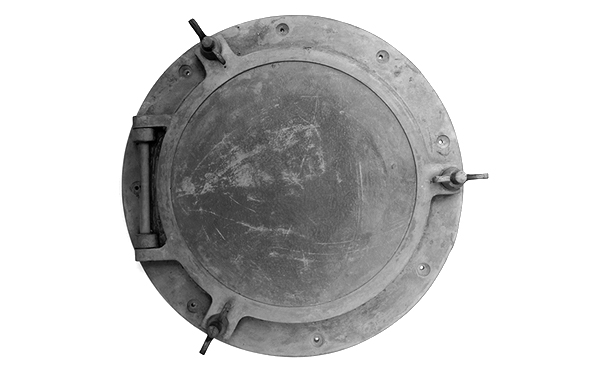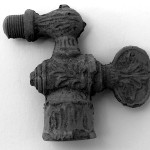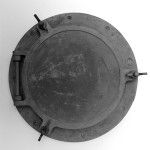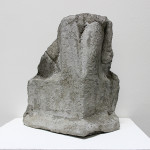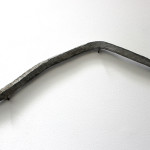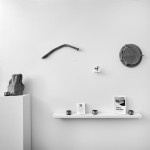Artist Christina Kelly and author Amy Sohn have collaborated on a multimedia project as part of a Gowanus-themed group show, “Falling In,” at Trestle Projects. Each of the artists in “Falling In” developed pieces with special connections to the Environmental Protection Agency Superfund waters of the Gowanus Canal.
For Gowanus Underworld, artist Kelly took found objects from the banks of the Gowanus and cast them in concrete. Concrete has long been associated with Gowanus, going back to the late 19th-century Coignet Agglomerate Company in the Coignet building at the corner of Third Avenue and Third Streets – believed to be the first artificial stone building in New York City. The industry continues to be active along the Canal even today.
Drawing on historical newspaper accounts, novelist Sohn unearthed true stories from Gowanus’ history relating to each object. She wrote original monologues based on these stories, which were recorded by actors to bring the emotional dramas to life. Visitors to Gowanus Underworld can examine the artifacts while listening to corresponding monologues, connecting the physical objects to the drama and emotion behind them.
19th Century Gas valve – A distraught mother in 1940 attempts to take her own life and the lives of her two small sons after her husband leaves her for another woman.
Porthole – A young, single, working woman in the Depression era buys a barge at a Gowanus auction and transforms it into a floating summerhouse.
Piece of the Coignet building – the founder of Coignet Agglomerate Company reveals his passion for artificial stone and explains why his company collapsed after just a few years.
Nail from wooden bulkhead – A longshoreman in the 1950s unloading copper from a freighter sees a small girl drowning in the water, and saves her life.
A fifth audio monologue is a portable, guided walk down Sixth Street between Second and Third Avenues, where a man was found stabbed to death in 1915. The walk casts the listener as a detective investigating the murder, who believed that the victim had ties to the Black Hand.
Visitors can take home a map marking the spots where the five dramas took place, so they can go on their own historical walking tours inspired by the project. The Canal has always been a place where heartbreak, obsession, impulsiveness, and bravery have played out alongside industry, innovation, and murky waters. This installation reminds us that whatever the future of the Gowanus, its history holds mystery.
